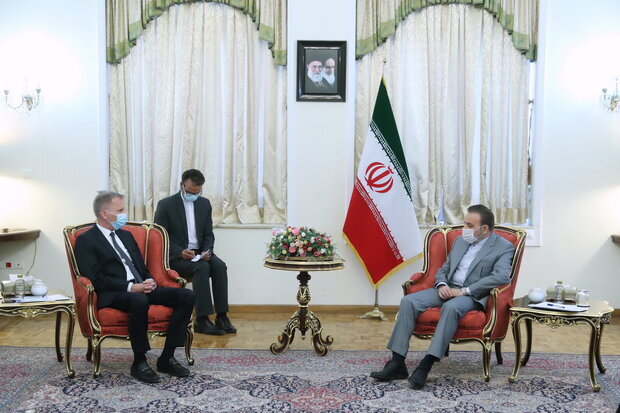Saving JCPOA harder than its 2015 conclusion: Iran’s Vaezi

TEHRAN – Presidential chief of staff Mahmoud Vaezi says preserving the Joint Comprehensive Plan of Action (JCPOA), commonly known as the Iran nuclear deal, is more difficult than its formation in 2015 due to the destructive measures taken by the Trump administration.
During a meeting with German Ambassador to Tehran Hans-Udo Muzel on Tuesday afternoon, Vaezi said Iran will abide by its obligations under the JCPOA if the other parties also abide by their obligations.
He also referred to Germany’s involvement in the nuclear talks, saying the JCPOA has been preserved until this moment due to the help of the remaining parties to the deal and the support of the international community.
The JCPOA, endorsed by the UN Security Council Resolution 2231, was signed between Iran, the United States, Britain, Germany, France, the European Union, Russia, and China on July 14, 2015. However, U.S. President Donald Trump abandoned the deal on May 8, 2018, and returned sanctions and imposed new harsh ones.
The sanctions are in line with the “maximum pressure” campaign that Trump imposed on Iran in 2018 after it withdrew from the JCPOA.
Meanwhile, in an official statement on Sunday, Iran’s Foreign Ministry announced the termination of a UN arms embargo on Iran in defiance of the United States’ failed efforts to extend the embargo.
The U.S. had made tremendous efforts, from submitting a draft resolution to the UN Security Council calling for the extension of the arms embargo to triggering a controversial mechanism within the JCPOA, to make sure that the UN arms restrictions on Iran will not be lifted. But all U.S. efforts in this regard have faced firm opposition from the international community. All JCPOA parties as well as almost all non-permanent members of the 15-member UN Security Council have said the U.S. had no legal authority to extend the arms embargo on Iran.
In his remarks, Vaezi also referred to the numerous crises in West Asia and highlighted the need to adopt negotiation methods and non-war solutions to resolve problems and disputes.
For his part, Hans-Udo Muzel pointed to the rich history and culture and the prominent role of Iran in the region, saying dialogue between countries are very important.
He voiced hope that during his mission in Tehran, Iran and Germany would expand their relations.
On the region's problems, he called the dialogue an effective step out of the existing challenges.
MH/PA

Leave a Comment